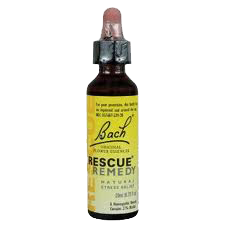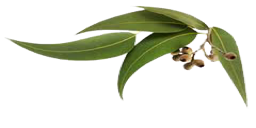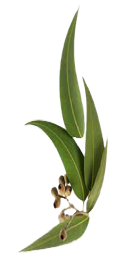
If you would like to know a little history on Dr Edward Bach you can check out this link:
http://www.bachcentre.com/centre/drbach.htm
There are 38 flower remedies that had been discovered by Dr Edward Bach. How it works is you choose your flowers and remedies based on your moods and feelings. The same also applies for animals.
Here is the list of 38 flowers and what they heal.
Agrimony - mental torture behind a cheerful face
Aspen - fear of unknown things
Beech - intolerance
Centaury - the inability to say 'no'
Cerato - lack of trust in one's own decisions
Cherry Plum - fear of the mind giving way
Chestnut Bud - failure to learn from mistakes
Chicory - selfish, possessive love
Clematis - dreaming of the future without working in the present
Crab Apple - the cleansing remedy, also for self-hatred
Elm - overwhelmed by responsibility
Gentian - discouragement after a setback
Gorse - hopelessness and despair
Heather - self centredness and self-concern
Holly - hatred, envy and jealousy
Honeysuckle - living in the past
Hornbeam - tiredness at the thought of doing something
Impatiens - impatience
Larch - lack of confidence
Mimulus - fear of known things
Mustard - deep gloom for no reason
Oak - the plodder who keeps going past the point of exhaustion
Olive - exhaustion following mental or physical effort
Pine - guilt
Red Chestnut - over-concern for the welfare of loved ones
Rock Rose - terror and fright
Rock Water - self-denial, rigidity and self-repression
Scleranthus - inability to choose between alternatives
Star of Bethlehem - shock
Sweet Chestnut - Extreme mental anguish, when everything has been tried and there is no light left
Vervain - over-enthusiasm
Vine - dominance and inflexibility
Walnut - protection from change and unwanted influences
Water Violet - pride and aloofness
White Chestnut - unwanted thoughts and mental arguments
Wild Oat - uncertainty over one's direction in life
Wild Rose - drifting, resignation, apathy
Willow - self-pity and resentment
Rescue Remedy contains small amounts of the flowers: Rock Rose, Impatiens, Clematis, Star Bethlehem,
Cherry Plum. In a 50:50 solution of water and Brandy. You can also now buy non alcohol Rescue Remedy
and other Bach flowers. Rescue Remedy is the traditional crisis remedy and something you can safely
give to your parrots on a regular basis. Not only is it the crisis remedy, but it is also a very good
prevention. It doesn't matter if your parrot is well, giving them Rescue Remedy often will help them deal
better with any and all sudden crisis’s that occur in the future.
Rescue Remedy is the best known of the crisis remedies but all remedy makers have their version of this as well.
The rescue remedy 'normal', or for pets is recommended for regular use for parrots, even if your parrot appears well. Rescue Remedy can safely be continually used in preventions as well as in emergencies. There are also other Bach Rescue Remedies for pets, like Pastilles and others. These are not recommended for use for parrots.
Here is a list of flowers put together for different problems. Usually the flowers are in groups of 4 to 6 however you can have 1 or 2 more on occasion.
Overly sensitive birds - Agrimony, Cebtaury, Holly, Walnut
Fear - Aspen, Cherry Plum, Mimulus, Red Chestnut, Red Rose
Overly concerned birds - Beech, Chicory, Rock Water, Vervain, Vine
Uncertanty - Cerato, Gorse, Hornbean, Wild Oat
Insufficient interest in surroundings - Chestnut bud, Clematis, Mustard, Olive, White Chestnut, Wild Rose
Dispair - Crab Apple, Elm, Gentain, Larch, Oak, Pine, Star of Bethlehem, Sweet Chestnut, Willow
Loneliness - Impatiens, Water Violet, Heather
Aloe - Boosts the immune system when eaten and can be used to heal cuts and small wounds
Apple Cider vinegar- Packed with vitamins and minerals it’s great for the intestinal system. It can be used for candida, bacterial infections, diarrhoea.
Chamomile- Used as a pain relief, a calmer, anti inflammatory and for feather plucking
Dandelion- Used as a diuretic, also used for high blood pressure, yeast infections, diabetes, kidney disease, liver disease
Echinacea- Immune booster, viral infections, aids in treatment to PBFD
Elderberry- Anti inflammatory, reduces flu symptoms, aides in viral infections, skin disorders, as a tea it strengthens and balances body functions
Ginseng- Immune and energy booster, anaemia, diarrhoea, bacterial infections, aides in cancer therapies, promotes longevity in older birds
Hawthorn Berry- Lowers blood pressure, improve the hearts output and is recommended for older birds
Marshmallow- Used for coughs and bronchitis, good for cooling and moisturising the body, diabetes, ulcers, protects the liver from toxins, also used for feather plucking
Milk Thistle- Protects liver and heals liver cells, is a potent anti oxidant
Valerian root- Used for feather plucking, fearful birds, traveling and aggressive birds
Eclectus parrots that eat food high in Vitamin A and beta-carotene will result in better immune system response to disease. Most orange, yellow and red vegetables contain vitamin A and beta carotene. Also very good sources of vitamin A come from kales and many other leafy greens.

Holistic Information
Herbal Remedies

These flowers and remedies are only a guide. Please consult your birds avian vet or holistic expert for the correct flower uses and dosages.

Bach Flowers and Their Meanings
TIP: eclectus parrots do better on holistic care. Anything as simple as a dew herbs and weeds a day can help improve he health of your birds.

